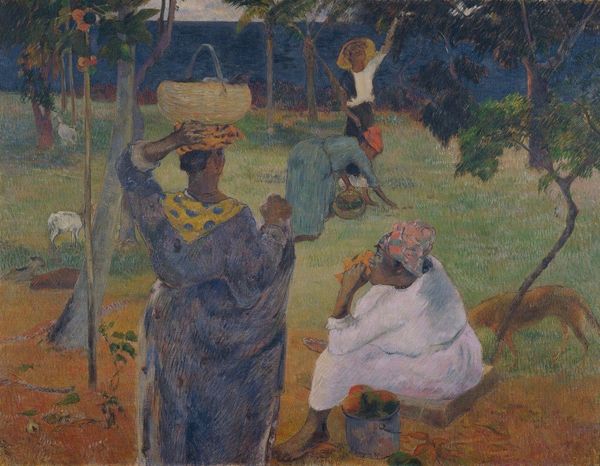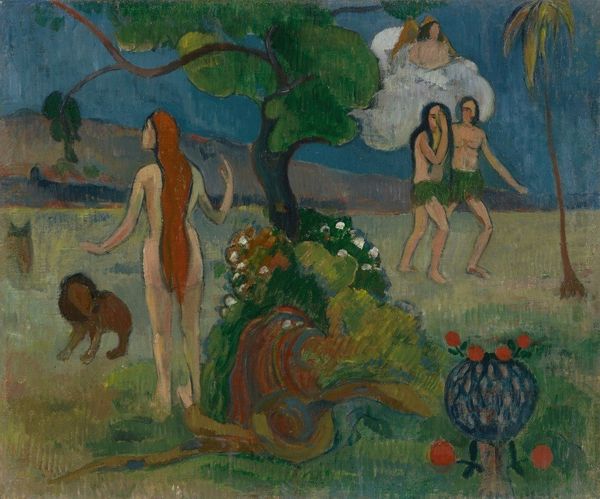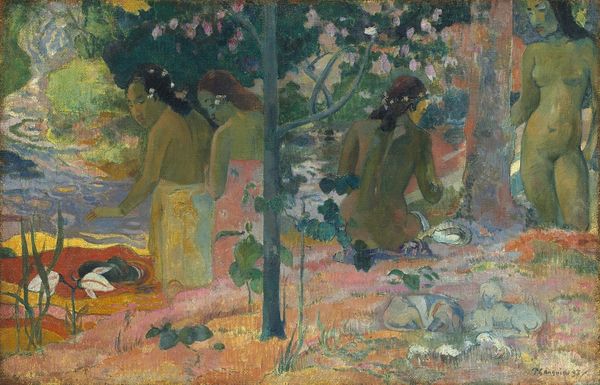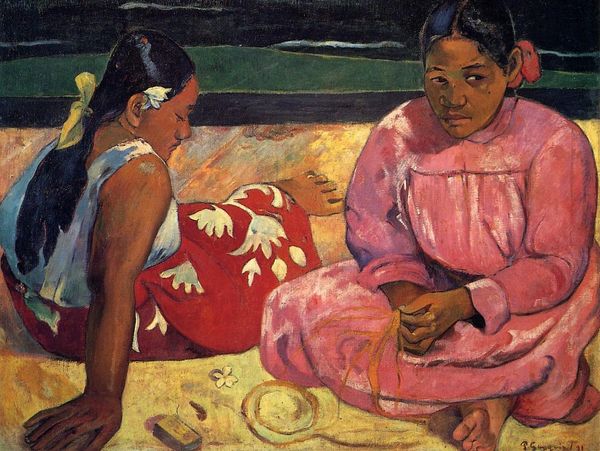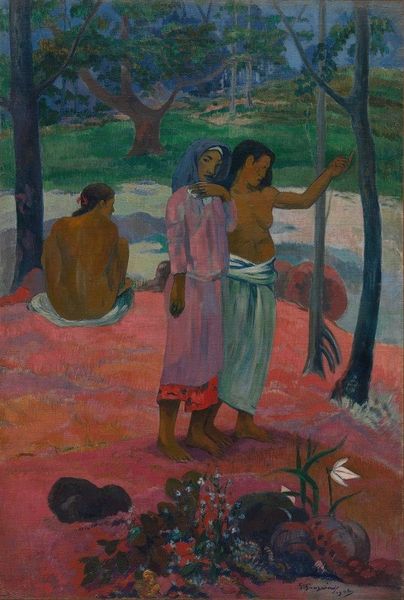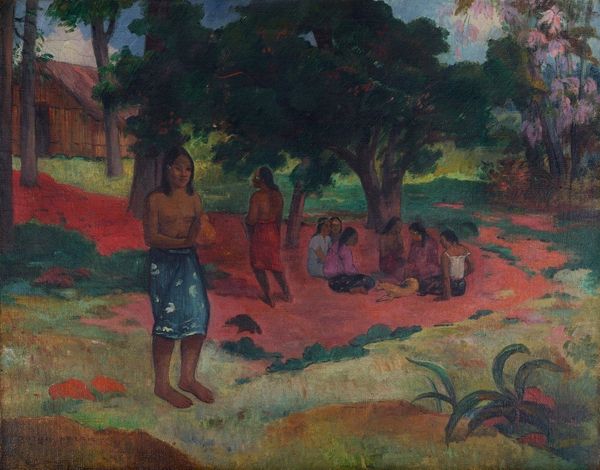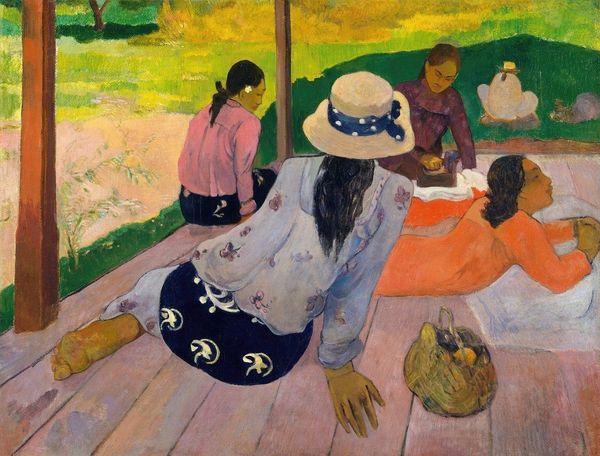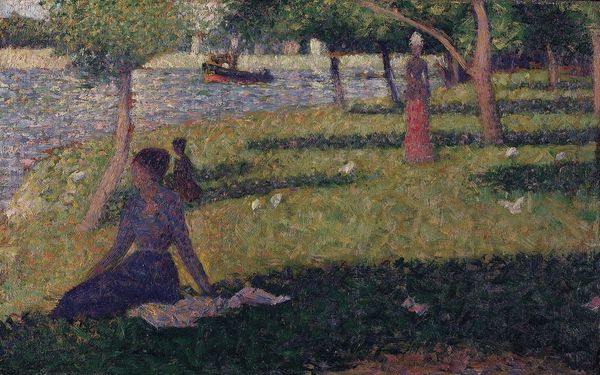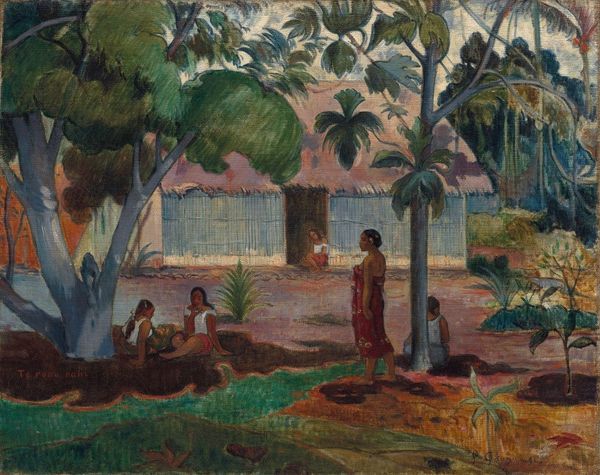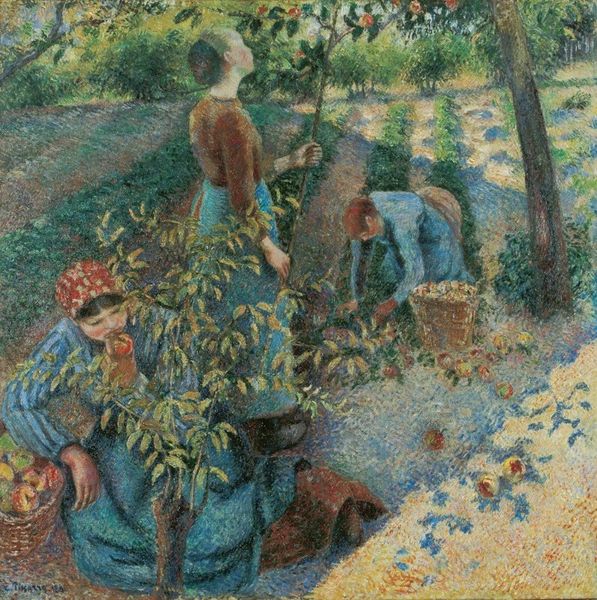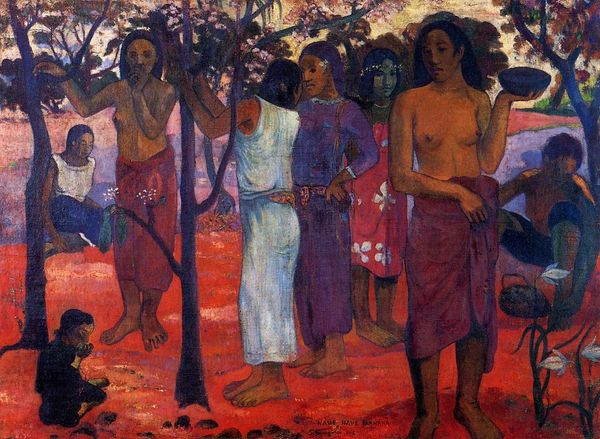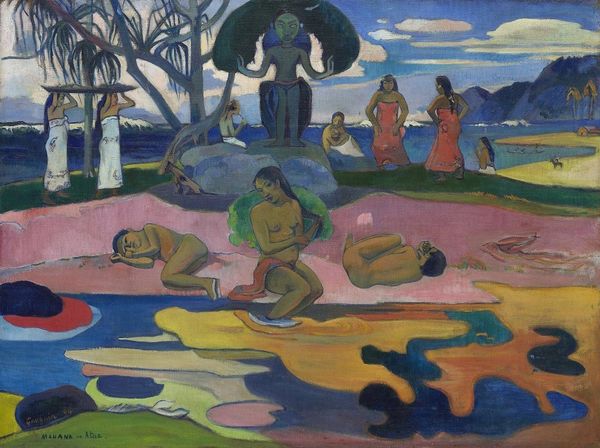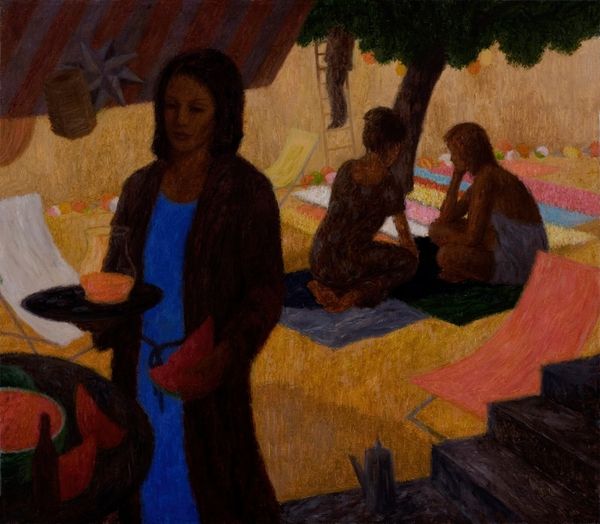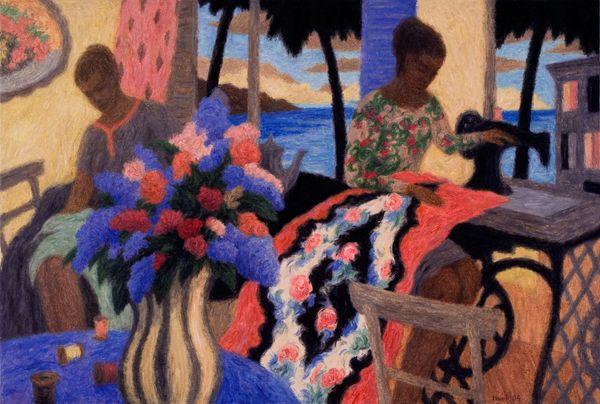
Copyright: Public Domain: Artvee
Editor: This is "No te aha oe riri," painted by Paul Gauguin in 1896 using oil paint. The title translates to "Why are you angry?" and I find it somewhat unsettling. There’s a stillness, but also a palpable tension in the figures. What symbols or visual cues stand out to you? Curator: It is compelling how Gauguin, steeped in Post-Impressionism and his version of Primitivism, uses the arrangement of these figures to convey a complex narrative beyond a mere surface depiction of Tahitian life. Notice the seated women in the foreground, seemingly unconcerned, juxtaposed with the standing figure. This is an example of how Gauguin builds an entire narrative through his understanding of primal relationship dynamics. Editor: Primal, as in related to universal human behaviors? Curator: Precisely. In our society we have clear structures about family relationships and social engagement. Here in Gauguin’s painting we don’t. Notice the hens and chicks, pecking around, contrasting with the implied tension of the title. Do you observe how the body language itself – the turn of a head, the averted gaze – hints at an underlying discord? What emotional associations does it bring up for you? Editor: It's almost voyeuristic, as though we're witnessing a private moment. But also a bit forced... constructed. Curator: That is interesting, because it captures how Gauguin, although seeking an authentic, native experience, could only achieve it through a Western lens. This reflects the complex cultural exchange, or perhaps appropriation, of that era. It calls us to consider the visual weight of paradise—often a Western construction—as he perceived and painted it. Editor: So, it's not just about the scene itself, but the baggage we bring to it? Curator: Precisely. We recognize that he can never truly enter that world he depicts; his painting becomes more about our projections. The question "Why are you angry?" then becomes internalized, pointed back at us. Editor: It definitely shifts the dynamic! Now I'm seeing it as a reflection on Western ideals and expectations versus lived experience.
Comments
No comments
Be the first to comment and join the conversation on the ultimate creative platform.
